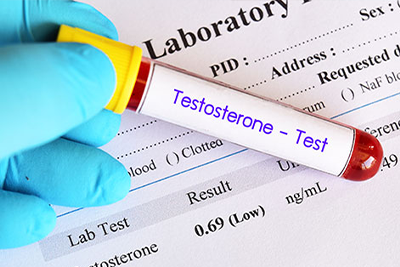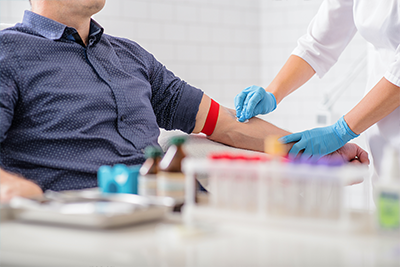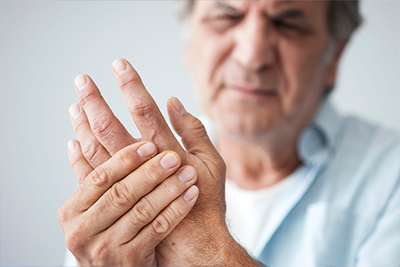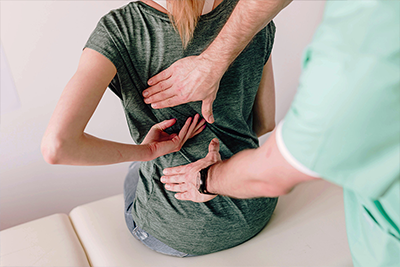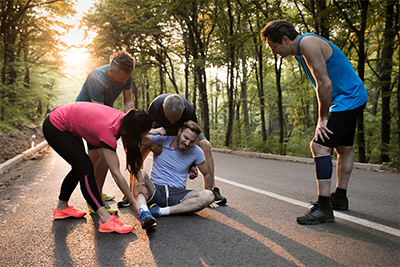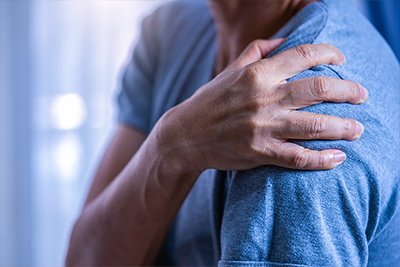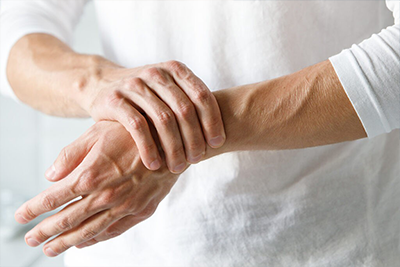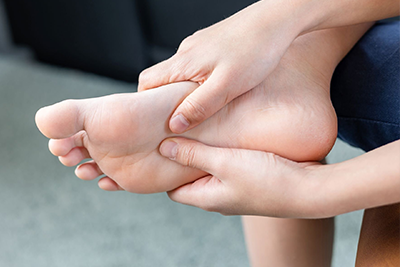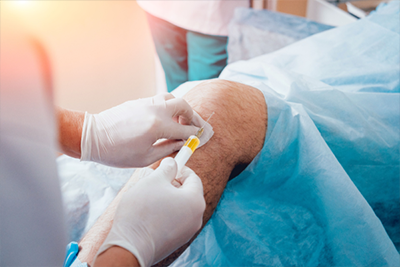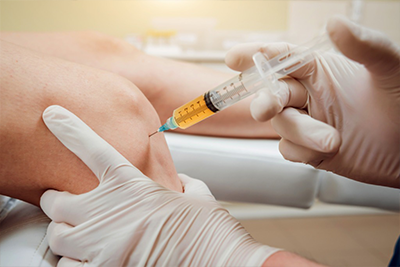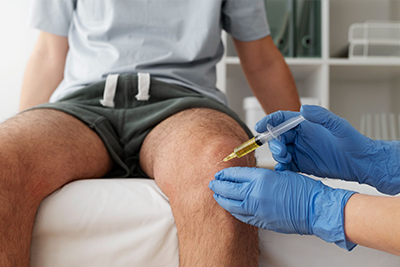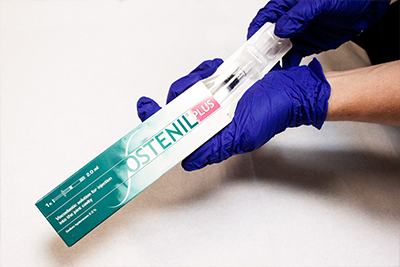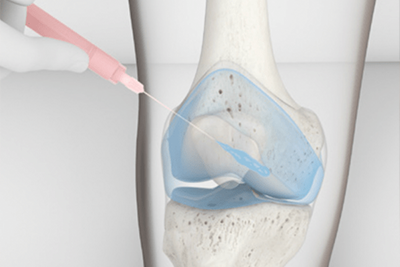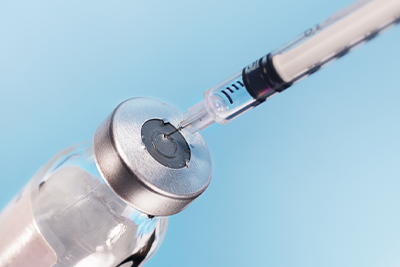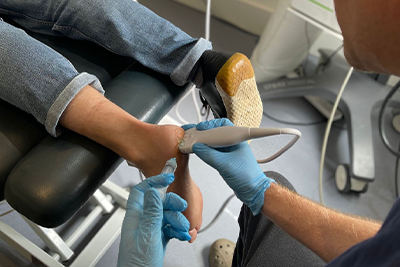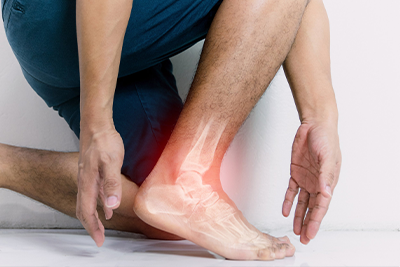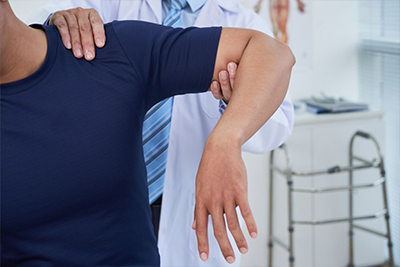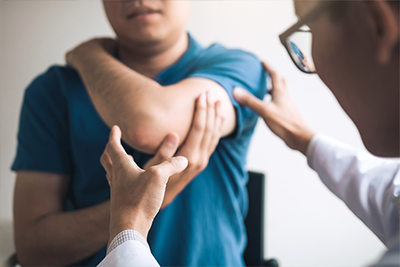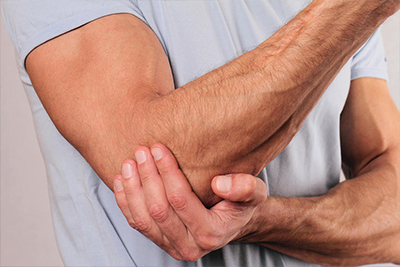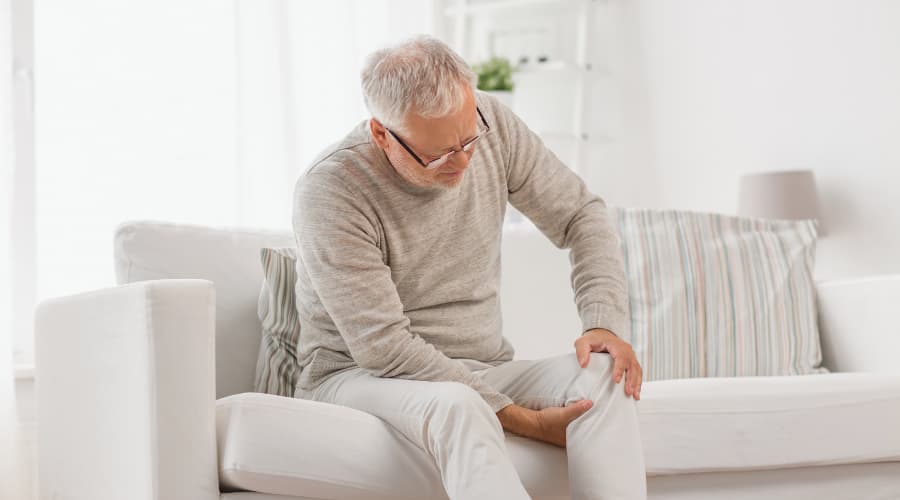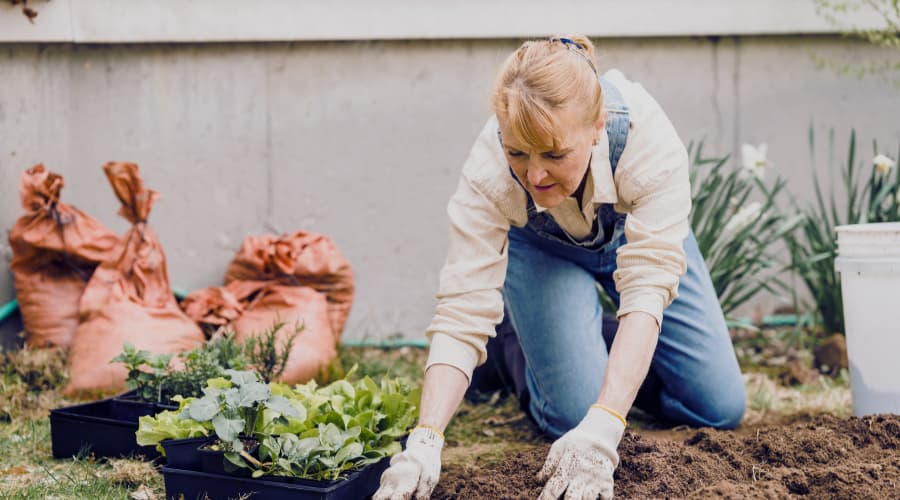Summer is the perfect time to get active, whether playing tennis, running or football. But while the warmer weather and longer evenings encourage us to move more, they can also place added strain on our joints, especially if we’re diving into new activities or increasing our fitness routine. At Vale Health Clinic, keeping your joints healthy is the key to enjoying an active and pain-free summer.
Joint Support Matters
From tennis to hiking, summer sports often involve repetitive movements, quick changes in direction, or high-impact activities. While these can be great for cardiovascular health and fitness, they can also stress your joints. This is particularly true for your knees, hips, and shoulders—areas most commonly affected by overuse or improper support.
Maintaining good joint health is about more than just avoiding injuries. It’s about ensuring your joints remain strong, flexible, and ready for whatever activity you throw at them. A well-rounded approach to joint care includes proper nutrition, exercise, and, when needed, treatments like hyaluronic acid injections or Ostenil therapy for more serious joint concerns.
Keep Your Joints Healthy This Summer
Summer is the perfect time to get moving, but increased activity levels can place additional strain on your joints. Taking proactive steps can safeguard your joint health and allow you to enjoy a pain-free season of sports and outdoor fun.
Nutrition
Your diet plays a vital role in supporting joint health. The proper nutrients can help repair cartilage, reduce inflammation, and promote overall joint function:
- Vitamin C for Collagen Production: Collagen is a key component of cartilage, and vitamin C is essential for its production. Boost your intake with fruits like strawberries, oranges, and kiwis, as well as vegetables such as broccoli, peppers, and Brussels sprouts. Vitamin C supplements can also provide added support.
- Omega-3 Fatty Acids: Found in oily fish like salmon, mackerel, and sardines, omega-3s have powerful anti-inflammatory properties. They can help reduce joint swelling and pain, making them an excellent addition to your summer diet. Plant-based options like flaxseeds and walnuts can also provide omega-3s if you don’t eat fish.
- Magnesium for Muscle and Bone Health: This essential mineral supports muscle function and helps reduce inflammation. Include magnesium-rich foods like spinach, pumpkin seeds, almonds, and whole grains to keep your joints supple and pain-free.
- Anti-Inflammatory Spices: Turmeric and ginger are natural inflammation fighters. Use them in your meals, teas, or even as supplements to help keep your joints comfortable and mobile.
Hydration
Dehydration can reduce the effectiveness of synovial fluid, the lubricant in your joints. This fluid is critical in reducing friction and preventing joint pain during movement. Keep a reusable water bottle handy and aim for 6-8 glasses daily, especially if you’re sweating during exercise or in the summer heat.
The Right Exercises
While staying active is essential for joint health, the type and intensity of exercise matter:
- Low-Impact Activities: Opt for activities like swimming, cycling, or yoga that reduce strain on your joints while improving strength and flexibility. Water-based exercises are particularly beneficial as they minimise impact while allowing a full range of motion.
- Strength Training: Build up the muscles around your joints to provide extra support. Focus on exercises like squats, lunges, and resistance band workouts that strengthen key muscle groups like the glutes, quadriceps, and hamstrings.
- Flexibility and Balance Training: Incorporate yoga or Pilates into your routine to improve flexibility and joint stability, which can reduce the risk of injuries.
The Right Gear
Invest in high-quality, supportive footwear to align your joints and minimise strain during activities. Shoes with proper arch support and cushioning are crucial for runners and walkers. Consider braces or compression supports for added stability for sports like tennis or football.
Listen to Your Body
Pain is your body’s way of signalling that something isn’t right. If you feel discomfort during an activity, stop and reassess. Overexertion can lead to injury, so be mindful of your limits and take regular rest days to allow your joints to recover.
Self Maintenance for Sore Joints
When joint pain strikes, simple home remedies can provide relief and support healing, these tried-and-tested methods can help you manage discomfort and keep you moving throughout the summer.
Heat or Ice Therapy
Heat and cold are excellent tools for managing joint pain:
- Heat Therapy: Use a heating pad, warm towel, or a warm bath to soothe stiff joints and improve blood circulation. Heat relaxes muscles and reduces discomfort, making it a great option for chronic pain or stiffness.
- Cold Therapy: Ice packs reduce swelling and numbing sharp joint pain. Apply ice wrapped in a cloth to the affected area for 10-15 minutes, especially after intense physical activity.
Natural Topical Solutions
- Arnica Gel: A natural remedy derived from the arnica plant, this gel can alleviate joint and muscle pain. Regular application can help reduce inflammation and promote faster recovery after physical activity.
- Essential Oils: Massaging joints with diluted essential oils like eucalyptus, peppermint, or lavender can provide soothing relief. These oils have anti-inflammatory and analgesic properties that help ease discomfort.
Anti-Inflammatory Foods
What you eat can influence how your body handles joint inflammation:
- Bone Broth: Rich in collagen and minerals, bone broth supports cartilage health and joint repair. Sip on homemade or store-bought bone broth as a nourishing addition to your diet.
- Turmeric and Ginger: Brew a tea or cook with fresh turmeric or ginger to harness their anti-inflammatory properties. Alternatively, consider supplements if fresh options aren’t easily accessible.
Compression and Elevation
- Compression: Wrap the affected joint with a compression bandage to reduce swelling and provide stability. Just ensure it’s snug but not too tight to maintain proper circulation.
- Elevation: If you’re dealing with swollen joints, elevate the affected area above heart level to reduce inflammation and promote fluid drainage.
Movement and Stretching
While rest is essential, prolonged immobility can stiffen joints and worsen discomfort. Engage in gentle stretching exercises to keep your joints mobile. For example:
- Rotate your ankles, wrists, and shoulders in circular motions to improve your range of motion.
- Try gentle yoga poses like Child’s Pose or Cat-Cow Stretch for spine and hip relief.
Magnesium Baths
Soaking in a warm bath with Epsom salts (magnesium sulphate) can help relax muscles, reduce joint inflammation, and ease pain. Add a cup of Epsom salts to your bathwater and soak for 20 minutes to experience its soothing effects.
Stay Active Safely
Low-impact activities like swimming, cycling, or walking help maintain joint health without overloading them. The gentle movement also increases blood flow, which promotes healing.
Treating Joint Pain at Vale Health Clinic
If joint discomfort slows you down this summer, professional treatments can provide relief and long-term joint support. At Vale Health Clinic, we offer hyaluronic acid injections, Ostenil therapy, and Durolane injections designed to restore joint lubrication and cushioning.
These treatments are particularly effective for osteoarthritis or sports-related wear and tear. Reducing inflammation and improving joint mobility can help you stay active and pain-free.
Professional care, such as chiropractic or physiotherapy, can help manage joint strain and sporting injuries. Regular assessments can also catch minor imbalances before they develop into more significant problems.
Get the Most Out of Your Summer Activities
This summer, don’t let joint pain hold you back. You can keep your joints healthy and active by combining proper nutrition, exercise, and professional care when needed. At Vale Health Clinic, we support your journey with expert advice, treatments, and personalised care plans. Let’s make this your most active summer yet!
Related Articles
- Why Do Your Joints Click?
- Knee Exercises for Pain and Rehabilitation
- Runners Knee, a Recipe for a Pain-Free Knee
- Managing Osteoarthritis (OA) Knee Pain
- Pain Relief Tips for Aching Joints in Winter


